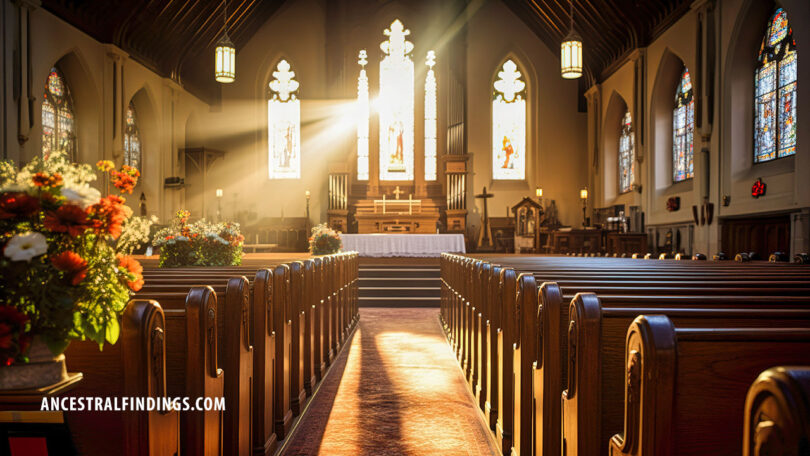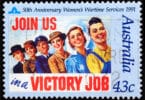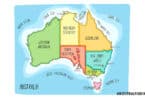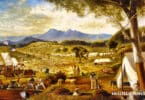When it comes to tracing family history, genealogists often turn to the usual suspects—census records, immigration documents, and land deeds. However, a wealth of information often goes unnoticed in the archives of local institutions, especially in church and school records. These records can be invaluable in Australia, particularly when formal documents like birth certificates or censuses are unavailable or incomplete.
Why Church and School Records Matter
Churches and schools have long been cornerstones of local communities in Australia, especially in the early colonial period and in rural areas where formal government record-keeping wasn’t always as reliable. For many Australians, these institutions were central to their lives, providing education, spiritual guidance, and social networks.
Church records can include:
• Baptismal, Marriage, and Burial Records: Before civil registration became mandatory, churches kept detailed records of births, marriages, and deaths. These documents often include vital information such as names, dates, parents’ names, and sometimes even details like occupation or place of residence.
• Confirmation and Membership Lists: These records offer a glimpse into your ancestors’ religious affiliations and social standing within their community.
• Church Minutes and Newsletters: In smaller, close-knit communities, churches often recorded minutes of meetings or distributed newsletters that mentioned key events, families, or milestones.
On the other hand, school records provide a unique look at your ancestors’ early years. These records can include:
• Admission Registers: School admission records often list students’ names, ages, parents or guardians, and addresses. These registers can help track family movements, especially when combined with census or electoral records.
• Attendance Logs: Tracking your ancestors’ school attendance can offer insights into their early life, health, and family circumstances, particularly in cases where schooling was interrupted by financial difficulties or family relocations.
• School Photos and Yearbooks: Photographs or written accounts in school newsletters or yearbooks can add a personal touch, allowing you to visualize your ancestors during their school years.
Where to Find Church and School Records
There are several online and offline resources that can help you locate church and school records. Here are some places to start:
• Trove (National Library of Australia)
Trove provides access to digitized newspapers, church newsletters, and some local historical records, which can help find information on local institutions.
FamilySearch offers free access to various church records, including parish registers from various denominations across Australia. It’s a great place to start for baptisms, marriages, and burials.
Ancestry holds a collection of Australian church and school records, many of which are digitized and searchable.
• National Archives of Australia (NAA)
The NAA holds various church and school records, particularly from government-supported missions and schools. It offers online access to some digitized records.
• State and Territory Libraries
State libraries, such as the State Library of New South Wales or the State Library of Victoria, often hold local church and school records archives, including admission registers and religious documents. Their online catalogs can help you locate relevant materials.
• Anglican Church Diocese Archives
If your ancestors were part of the Anglican Church, each diocese usually holds records of baptisms, marriages, and burials. Contact the diocesan offices directly for assistance in accessing these records. You can start at the Anglican Church of Australia.
Many Catholic parishes have preserved detailed records of sacraments. The Catholic Archdiocese of Sydney and other archdioceses around Australia often maintain archives for historical research.
Using Church and School Records in Your Research
Church and school records often bridge the gaps left by missing or incomplete official documents. For example, if you’ve struggled to find a birth certificate for an ancestor, a baptismal record may provide the missing details. Similarly, if you’re trying to understand more about your ancestor’s early life, school admission records might give you an idea of when and where their family moved.
When analyzing these records, look out for:
• Family Relationships: Church records, in particular, often list parents, godparents, and witnesses—offering hints of extended family members or close friends.
• Changes in Address: School registers sometimes list a home address, which can help trace family movements over time. If you find gaps in school attendance, it might be due to a relocation or change in family circumstances.
• Community Involvement: Church membership or participation in religious events can indicate social standing and involvement in the community, providing context for your ancestors’ lives beyond the basic genealogical facts.
An Often Overlooked Goldmine
Church and school records offer a wealth of information often overlooked by genealogists. These local institutions provide critical documentation that can fill in gaps left by more formal records, helping to paint a fuller picture of your ancestors’ lives. Whether you’re tracking down a missing birth record or looking to understand your ancestor’s early life, these records are invaluable for bringing your family’s history to life.







